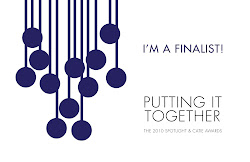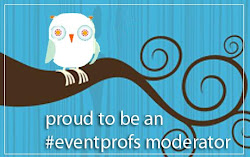 Not a newsflash: the economy is (still) in the tank. Projections for 2010 meetings suggest things will be worse before they get better. And as an event designer that initially doesn't sound very fun! With budgets slashed, clients keep coming with the desire to do the same or more for less. They want (or internal bosses are demanding) they demonstrate good value for their spend. And yet, more and more it seems the word "value" is being swapped for "cheap price".
Not a newsflash: the economy is (still) in the tank. Projections for 2010 meetings suggest things will be worse before they get better. And as an event designer that initially doesn't sound very fun! With budgets slashed, clients keep coming with the desire to do the same or more for less. They want (or internal bosses are demanding) they demonstrate good value for their spend. And yet, more and more it seems the word "value" is being swapped for "cheap price".While I could write for several paragraphs on the multitude of meanings of the word value, I want not to bore anyone who has given me the precious time to read this post. So instead we will just focus in one idea: "cheap price". And here is my thought: "cheap price" does not equal "good value" though you may find "good value" at a "cheap price".
It is not that I am advocating that vendors don't help their clients out in this time of need. Absolutely the opposite. Being a good vendor is about being a good partner, and as a good business partner we work very hard to understand the clients need and create solutions which deliver to those needs, as well as those limitations. Times are tough all around, and working together to create cost-effective solutions is always the way to go. That said, vendors shouldn't discount just to discount and grab up an extra piece of business. Doing so is short-sighted and steals away any real "value" the vendor's brand had. Good service and great ideas will always be valued and paid for. And in the creative solutions, cost reductions can be found, as long as the players in the project have clearly identified what they value in the first place.
The mistake I so often see is folks wanting to do what they have always done for a better price. But step back for a second. Ask instead "what value do we want to get out of what we are doing." So many events happen "because they always have" without real interest invested in the "why are we doing this project and what do we hope to achieve from it." To get "good value" you have to know what you "value" in the first place. What are the reasons and objectives for the meeting. Knowing these, does there have to be a general session? Does anyone really want name entertainment on opening night? Would the event be better with less people, but higher level discussions? Is our education track working? Is the networking earning us any business? The answer to any one of these questions (and the ones you have) may be Yes or No and both answers are right, provided it is a "value" to your situation.
Once you have identified these items which the organization or the attendees at the event value, you can set in on making good investment decisions with how to best spend the budget for the greatest return. It is not about checking the boxes, but spending money where it will reap the best benefit and foregoing or cutting back what you don't value. For the event planner: articulating the budget conversation in terms of organizational values provides leverage for you to articulate why you made the decor or entertainment or food choices you did (because our (clients/attendees/executives) value or don't value these items). It allows you to design your event to your needs-good value and therefore return-rather than design to tradition.
And one more note on the decor: "Right" is always best, but "nothing" looks better than "cheap". For example: if you are struggling to come up with a cheaper solution for a centerpiece, remember the right size/scale centerpiece for your 72" table will always look best. But if you can't afford it, no centerpiece will always play better in the arena of "perception" than that $25 version which is too small for the table. Choose wisely, because declining perception value, in the minds of your client, your attendees, your boss or the company executive is not a scale you ever want to be [measured] on.
What does Value mean to you? If you are a Twitter Fan: Join the conversation at #eventprofs, Tuesday July 21 at 9 pm EST. How to Join a Twitter Chat






